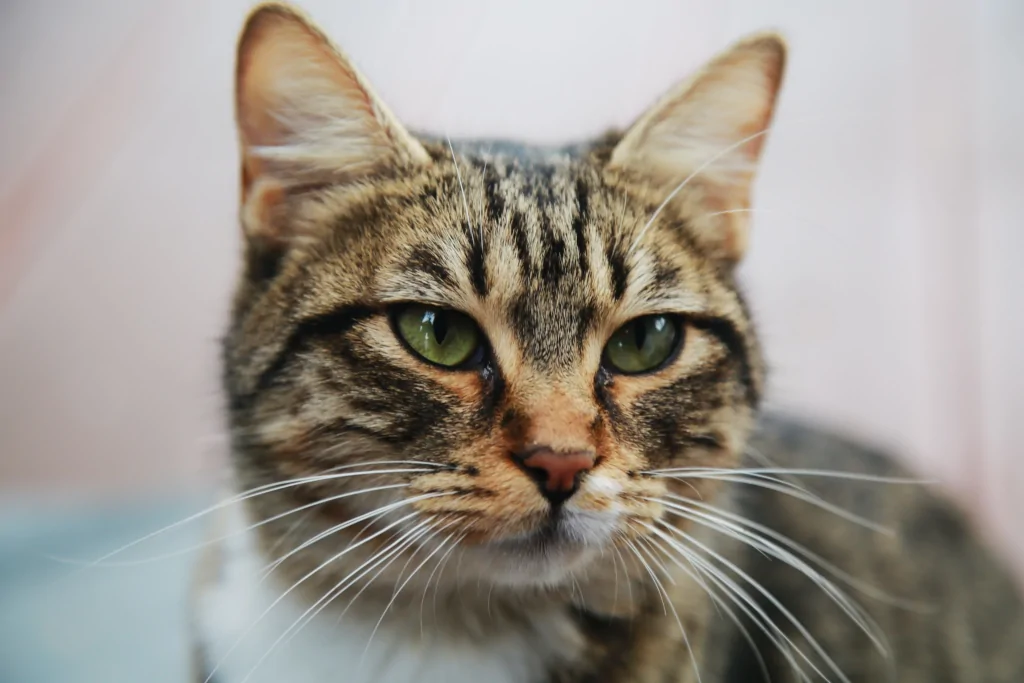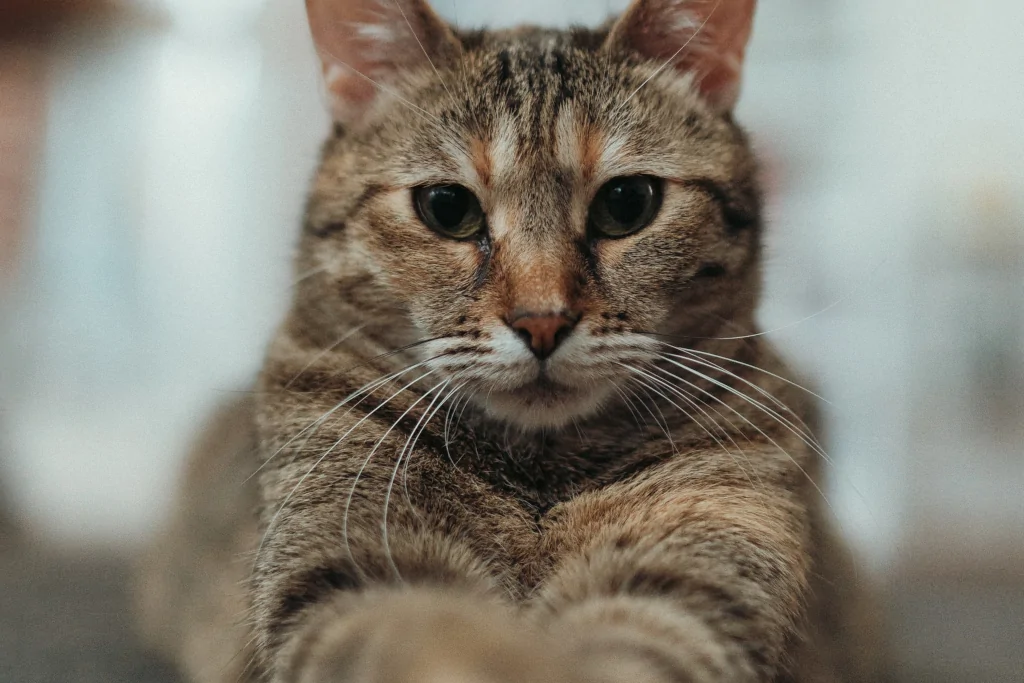Disclosure: We may earn a commission from helpful, relevant links in our content. No cost to you. See our privacy policy.
Have you ever wondered why your cat’s whiskers are turning black? Understanding the reasons behind this change might ease your concerns.
This article explores these factors to help you understand what’s happening with your feline friend’s whiskers and whether you should be worried or not.

The Mystery of Black Whiskers: What Causes the Change?
Whisker color changes, especially turning black, can be intriguing and even alarming to some cat owners. But fear not, as there are several explanations for this phenomenon, and most of them are completely natural.
For instance, a cat’s whiskers might darken due to aging or exposure to certain environmental factors.
In my experience, my cat Smokey’s whiskers gradually darkened as he grew older, which initially caught me off-guard. However, after learning about the various factors that could cause this change, I realized it was a natural process and didn’t pose any threat to his well-being.
Genetics and the Role They Play in Whisker Color
Just as genetics determine your cat’s fur color, they also play a significant role in whisker color.
Some cats are born with black whiskers, while others may have whiskers that change color over time.
For example, Siamese cats are known for their unique coat pattern and blue eyes, but they can also have dark whiskers due to the presence of the same gene that affects their fur color.
Similarly, other breeds like the Bombay, which have a sleek black coat, often have black whiskers as well. Black tabby cats often have black whiskers as well.
Knowing your cat’s breed and genetic background can provide insight into whether the change in whisker color is simply a normal part of their genetic makeup or indicative of another issue.
Aging Whiskers: Is Black the New Gray?
As your cat ages, it’s not uncommon for their whiskers to change color.
In some cases, black whiskers might replace the original white or gray ones. This can be similar to how humans get gray hair as they grow older.
For example, when my male cat Smokey turned nine, I noticed that some of his white whiskers started to turn black. It turned out to be a natural aging process and nothing to worry about.
Keep an eye on your cat’s whiskers as they age, and remember that these changes are usually just a normal part of their life cycle.

Environmental Factors That Influence Whisker Color
Sometimes, a cat’s whisker color can be influenced by environmental factors. For instance, exposure to certain chemicals, smoke, or pollutants might cause a cat’s whiskers to darken.
Additionally, a cat’s grooming habits, such as licking their whiskers, can introduce substances from their fur or surroundings onto the whiskers, leading to discoloration.
To ensure your cat’s environment remains safe and clean, regularly clean their living space, use pet-friendly cleaning products, and avoid smoking or using harsh chemicals around them.
By taking these precautions, you can help minimize the chances of whisker discoloration caused by environmental factors.
Unraveling the Truth: Are Black Whiskers a Cause for Concern?
In most cases, black whiskers are not a cause for concern. As discussed earlier, factors like genetics, aging, and environmental influences can contribute to whisker color changes.
However, if you notice sudden or extreme discoloration accompanied by other signs of distress or illness in your cat, such as lethargy, loss of appetite, or skin irritation, it’s best to consult your veterinarian to rule out any underlying health issues.
FAQs
Is it normal for a cat’s whiskers to change color as they age?
Color changes in a cat’s whiskers can be a natural part of the aging process, similar to how humans develop gray hair as they grow older.
Can whisker color indicate my cat’s mood or health?
While whisker color itself may not directly indicate your cat’s mood or health, sudden or extreme changes in color accompanied by other symptoms could suggest an underlying issue that requires veterinary attention.
Will my cat’s whiskers return to their original color?
In some cases, a cat’s whiskers may return to their original color if the cause of the discoloration, such as environmental factors, is addressed. However, if the change is due to aging or genetics, the color change might be permanent.
How do I know if my cat’s whisker color change is concerning?
Monitor your cat for any additional signs of distress or illness, such as lethargy, loss of appetite, or skin irritation. If you notice these symptoms along with whisker discoloration, consult your veterinarian for a thorough evaluation.
Alex, a passionate animal lover, has experience in training and understanding animal behavior. As a proud pet parent to two dogs and three cats, he founded AnimalReport.net to share insights from animal experts and expand his knowledge of the animal kingdom.




